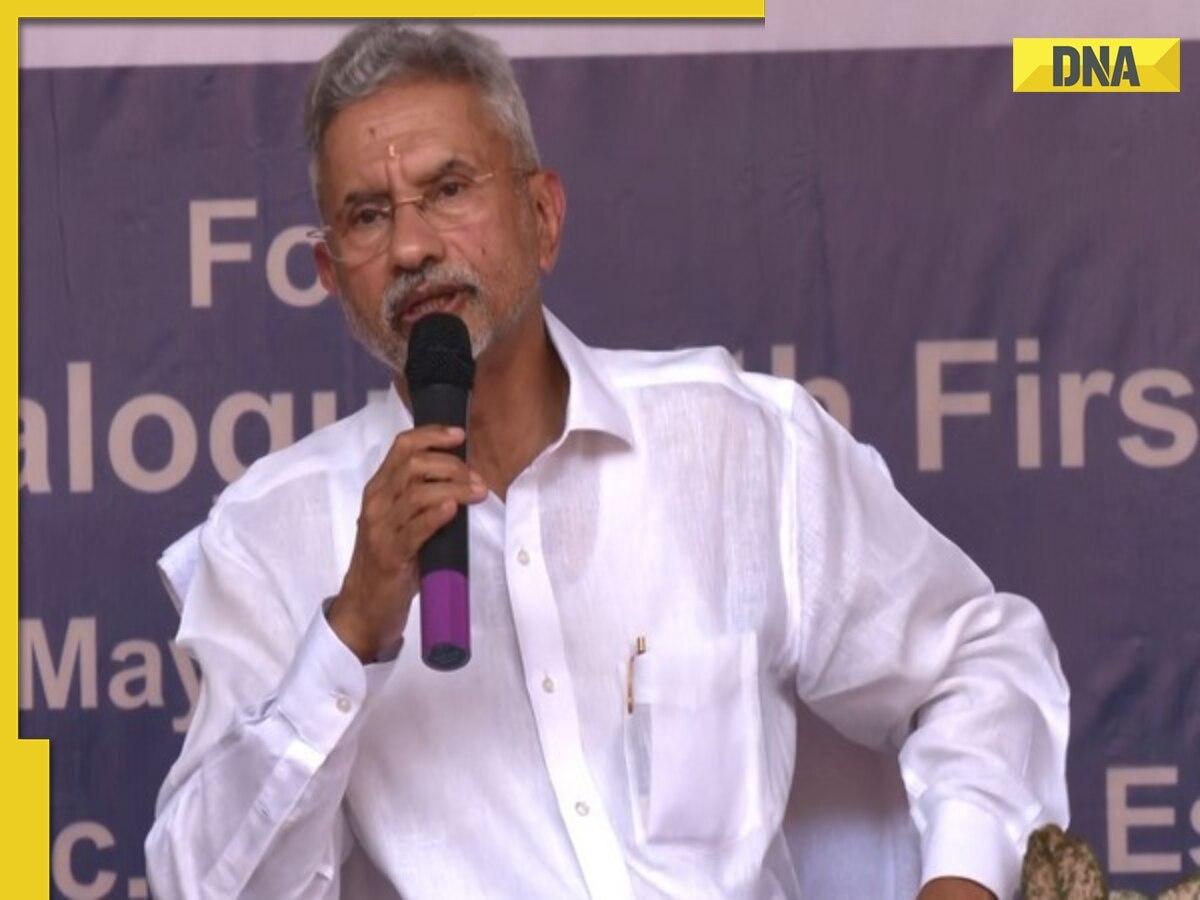
Citing the ‘unprecedented’ conflicts that erupted in Ukraine and Gaza, External Affairs Minister S Jaishankar issued a warning that the coming years would be “very difficult.” He elaborated on the nature of conflicts, stating that once a conflict begins, it tends to escalate on its own, making de-escalation exceedingly challenging.
In a candid conversation with first-time voters at the Delhi Tamil Association School in the national capital on Monday, Jaishankar expressed his concern regarding the persistent nature of these recent conflicts. “We all should expect the coming years to be very difficult,” he remarked. He further elaborated that no one had anticipated the protraction of the Russia-Ukraine conflict. “Nobody expected there would be a war in Ukraine. Even when it started, people expected it to be over in a few weeks, a few months. We are now in the third year of war with Ukraine with no end in sight,” he said.
Jaishankar also touched upon the surprising scale of the attacks on Israel on October 7. “Nobody expected this kind of attack on Israel in October, that this level of damage and killing would be done, or when Israel responded this would go for so long. It’s already over six months.” He underscored the difficulty of ending conflicts once they begin, stating, “Once there is any conflict, any war…once you turn on the switch it is very difficult to turn it off. Once the problem starts, it tends to pick up on its own.”
The Foreign Minister went on to stress the imperative of maintaining a robust foreign policy that not only strives for international peace but also ensures the security of India’s borders. “What we need in India is peace…for ourselves and for the world. Even if peace is not there in the world, at least for ourselves,” he noted.
. Highlighting India’s relative peace over the past 25 years, he called it a “fortunate” situation and emphasized the importance of continuing this through effective foreign policy.
Jaishankar pointed out India’s contributions toward resolving conflicts, mentioning its efforts in Ukraine and the challenging situation between Iran and Israel. “In Ukraine also we are contributing. Also, when things became quite difficult between Iran and Israel, we talked with both of them,” he said. He emphasized that India’s foremost diplomatic concern should be ‘Bharat First,’ ensuring that the country remains secure and at peace, free from terrorist attacks.
He also turned his attention to the recent protests in Pakistan-occupied Jammu and Kashmir (PoJK). Jaishankar attributed the violence there to the locals’ resentment over the lack of progress in PoJK compared to the advancements in the Kashmir valley. “I don’t think people are saying that PoK will be part of India. PoK was always a part of India…PoK, for reasons we all know, is currently occupied by Pakistan. We are seeing a lot of ferment in PoK,” he commented. Jaishankar speculated that the protests might stem from the residents observing the significant progress in Jammu and Kashmir and wondering why they are being left behind.
He was quick to clarify that the blame for the region’s underdevelopment lies not with the people of Kashmir but with certain segments of the leadership. “Please do not blame the people of Kashmir for any problems that they have been in for the last 80 years. It is a small section of the leadership there and leadership here, which has caused the problem,” he said.
Jaishankar used Kashmir as an example of what good governance can achieve, highlighting the region’s economic revival, growing tourism, better educational opportunities, and an increase in international flights once normalcy returned. He lamented that these developments could have happened sooner if not for a small group of people who held the region back to benefit politically. “All this could have happened before, but a small section of people wanted to keep it backwards because they were getting benefits out of it and they were propagating their political views,” he said.
In conclusion, Jaishankar stressed that good governance and honest communication with the people can yield significant benefits, making Kashmir a prime example of what can be achieved under effective leadership. He emphasized that India’s diplomatic efforts would continue to focus on ensuring peace and security both within the country and on the global stage.












